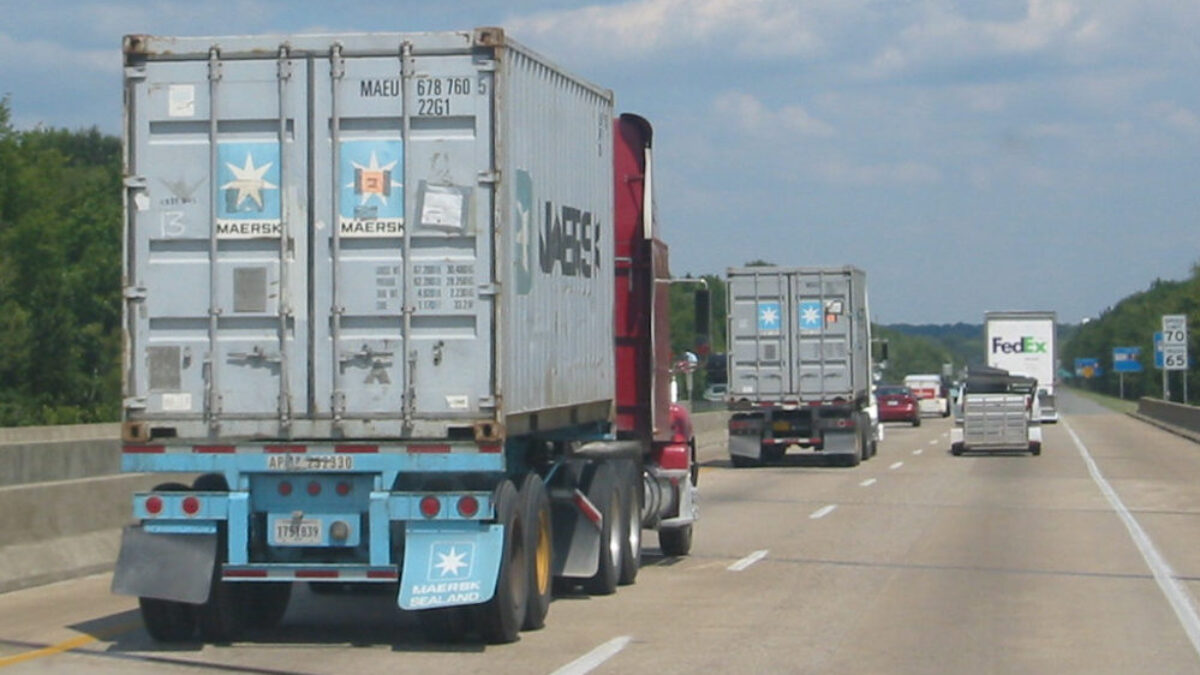
In an opinion piece for Newsweek online, truck driver Cyrus Tharpe assures us that the challenges faced by the United States supply chain are not the cause of a trucker shortage. It is instead a shortage in driver pay that is the culprit. In his experience, truckers are “essential workers” that get “garbage pay” for a dangerous and difficult job.
After 15 years in the industry, Tharpe still lives below the median income for his state and lives in a low-income neighborhood where he spends half of his monthly income on rent. He says his average annual pay increases have amounted to only about 1 percent. In his eyes, he and other blue-collar workers are out of options and cannot simply “work their way out of poverty.”
Tharpe believes presidents can “make big things happen” and hopes President Biden will force unionization on trucking companies seeking federal contracts. He is convinced that union pay checks and safety standards are the keys to more drivers joining the trucking ranks, a properly functioning supply chain, and the path out of his malaise. Sweeping government intervention is the panacea the country needs, Tharpe says.
I too am a truck driver, but my experience has been quite the opposite of Tharpe’s. In fact, I have found that the problem with trucking is not the pay nor the trucking companies nor even the inherent danger of the work. It is the government artificially inserting itself into the industry and my life.
I started driving in 2012. I live well above my state’s median income in a middle-class neighborhood where my mortgage is about an eighth of my income. In my 10 years of experience, my pay has more than doubled. The only “big thing” I’ve seen the government do is price me out of the health insurance market with empty promises and frustrate my days with growing regulations that outstrip the length of the Bible.
The last thing I want is more regulations heaped upon my narrow shoulders by some union adding their list of rules to an already over-regulated industry. In fact, if you wanted me to quit driving trucks, about the best way to accomplish that would be to petition the president to force my company to unionize the drivers.
Markets Work
The simple fact of the matter is: truck drivers are “unions” in and of themselves. I don’t have to “collectively bargain” for a higher wage. If a company is unable or unwilling to pay me what the market demands, there are dozens of companies out there clamoring for my services that can and will pay me what I’m worth.
If a trucker hasn’t seen a significant increase in pay over time and doesn’t have the ability to live in the upper-middle-income bracket, something is wrong. And it probably ain’t the company, the work, or the fact he’s not part of a government-backed union.
The problem with driver shortages doesn’t lie with the trucking outfits because, in a shortage, companies have to pony up and pay drivers properly or they’ll leave for greener pastures. That’s why I’m a union unto myself.
Still, transportation firms have to walk a tight line with pay when it comes to rookie drivers and new hires. Experienced drivers can turn more freight with less supervision. They earn the company more profit, so they are paid more.
Greenhorn drivers are not as efficient and are usually a menace for equipment, freight, and logistics planners. Until they gain some experience, they are a liability to the company. They are an investment for later returns.
Unions Won’t Help
The solution to the driver shortage is not unions. Companies can’t simply pull higher wages out of thin air despite countervailing market forces. Trucking outfits already take a loss on training inexperienced drivers and are maxed out on what they can pay seasoned employees.
If an artificial wage hike ensues because of a union agreement, transportation companies have only three choices: take the loss, pass the loss on to their customers (which means higher prices for consumers), or close up shop. If we’re trying to solve a supply chain crisis and inflation to boot, unionization of transportation and logistics companies is precisely the wrong move to make.
When it comes to an issue like work safety, I’d leave trucking before joining a union, and all the truckers I’ve known would as well. You’d go blind on the Federal Motor Carrier Safety Administration (FMCSA) website before you could read through all of the safety regulations governing the trucking industry. Here’s a little taste of how deep this rabbit hole goes.
I was pulled over by a Department of Transportation officer recently. The officer asked me if I knew why he pulled me over and I had no clue. Ready for this? I had my GPS stuck to my front windshield too close to my side of the cab by about six inches! The officer claimed it was “Obstructing my view of the road.”
Luckily he only failed me on a roadside inspection; no ticket, fine, or points on my squeaky clean Commercial Driver’s License this time. However, my company — at the behest of the FMCSA — had me travel 600 miles for a special “truck inspection” training course over the incident. I lost wages and my company lost revenue. The FMCSA is already a huge thorn in our sides without adding a union to the mix.
It’s obvious more government intervention is not the answer. With all the missteps in dealing with the pandemic over the last year, I think Uncle Sam has done about all he can do here. Please stop helping us!









